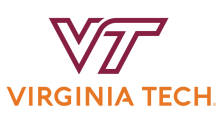
Virginia Polytechnic Institute and State University
ER #222 Contact: Amy Allen
The Meeting Virginia Standards of Learning While Engaging Elementary Students with Library of Congress Primary Sources project works directly with rural fourth-grade teachers, drawing on what is known about quality professional development to equip teachers to use Library of Congress documents to teach Virginia SOL’s, primarily through pairing picture books and visual thinking strategies with primary sources. As part of this three-day workshop, teachers visit local historical sites to interrogate place as a primary source while participating in workshops where presenters model teaching strategies that can be paired with Library of Congress Primary Source Sets. Teachers are also provided with resources to create their own lessons, then model/share these lessons with other participants. Teachers leave the workshop with a stipend and resources to implement the model lessons and their created lessons in their own classrooms.
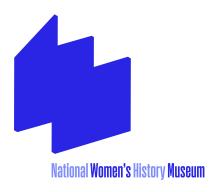
National Women's History Museum
ER #221 Contact: Rebecca Ljungren
The National Women’s History Museum, a private non-profit dedicated to amplifying women’s history, is using Library of Congress primary sources to reinvigorate some of NWHM’s most well-used, free, and accessible resources: biographies, lesson plans, and educator workshops. NWHM sees a critical need for women’s history to be grounded in rigorous, accessible, vetted, and wide-ranging primary source evidence, and values the rich collections at the Library of Congress as a means of building trust in the interpretation and understanding of women’s history. Through this grant, NWHM is producing a new biography model for their compendium of biographies using TPS strategies and Library of Congress primary sources, and will begin republishing biographies under this new model. NWHM will host a special session of “For Educators, By Educators” using Library of Congress primary sources and TPS strategies; and finally, NWHM will host a series of educator workshops that focus on teaching women’s history using primary sources. NWHM is collaborating with Dr. Katherine Perrotta of Mercer University, Tifft College of Education, on this grant project.
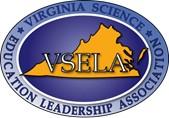
Virginia Science Education Leadership Association
ER #196 Contact: Dat Le
Empower Scientific Inquiry with Primary Sources provides professional learning for science leaders from school divisions across the Commonwealth of Virginia. These workshops focus on strategies for teaching science using primary sources from the Library of Congress, which can promote student a) inquiry and discourse b) critical thinking and analysis; and c) understanding of scientific history. As a result of the trainings, these science leaders disseminate and implement Teaching with Primary Sources (TPS) in their school divisions and train teachers in TPS strategies to support high quality science instruction.

Virginia Museum of History & Culture
ER #195 Contact: Sam Florer
The Virginia History Day Elementary Teacher Guide supports Virginia elementary school educators by providing age-appropriate sample lessons and activities needed to implement National History Day in the elementary classroom. The teacher guide is centered around inquiry based social studies skills. These skills include developing research inquiries, identifying and analyzing primary and secondary sources, identifying multiple perspectives, investigating historical context, research and note taking techniques, and narrative organization. VMHC hosts workshops introducing teachers to the recently-developed resources.
VHD Elementary Teacher Guide (PDF)
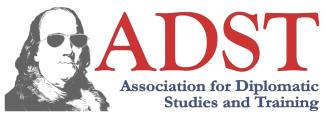
Association for Diplomatic Studies and Training (ADST)
ER #176 Contact: Heather Ashe
History Through Diplomacy 1945 to Present Day provides students the opportunity to work with oral history transcripts and podcasts of primary accounts of U.S. diplomats, giving them hands on experience with primary sources, and insight into how Foreign Service Officers work together to achieve the same set of overarching goals in an international setting. During a set of three separate workshops, teachers review modules to assist in weaving primary sources into their U.S./World History curriculum. Teachers than draft classroom workshops and lesson plans. Finally, teachers share a short presentation of plans they develop and participate in a collaborative discussion on how to best present these materials. In addition to primary sources related to The Foreign Affairs Oral History Collection, teachers are introduced to the Teaching with Primary Sources (TPS) materials and events to help maintain a connection with TPS programming.
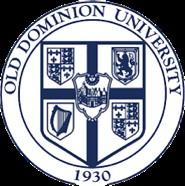
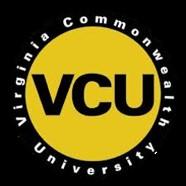
Old Dominion University and Virginia Commonwealth University
ER #170 Contacts: Yonghee Suh (ODU) and Brian Daugherity (VCU)
The Stories Untold: School Desegregation in the Context of U.S. History, a collaborative project between Old Dominion University and Virginia Commonwealth University, follows fifteen secondary social studies and history teachers across the country who participated in National Endowment for the Humanities Landmarks of American History and Culture Workshops, The Long Road from Brown: School Desegregation in Virginia (July 2021). Participants learn to navigate and utilize digitized primary sources from the Library of Congress associated with the era of school desegregation and the Civil Rights Movement and design, teach and reflect on their lessons. Project partners include African American Heritage Society of New Kent County, The Desegregation of Virginia Education (DOVE), and the Library of Virginia.
Map and Guide to Online Resources
Resources and Guiding Questions
Old Dominion University and Virginia Commonwealth University
ER #144 Contacts: Yonghee Suh (ODU) and Brian Daugherity (VCU)
The Local and the Global: School Desegregation in the Context of U.S. History, a collaborative project between Old Dominion University and Virginia Commonwealth University follows fifteen secondary social studies teachers and librarians from Virginia who participated in National Endowment for the Humanities (NEH) Landmarks of American History and Culture Workshops, The Long Road from Brown: School Desegregation in Virginia. Participants design, teach and reflect on lessons dealing with school desegregation and learn to navigate and utilize TPS materials for their lessons throughout the program. Emphasis is on providing participants with support to use primary source documents, including oral history collections related to Brown v. Board of Education and the Civil Rights Movement, and to design and teach inquiry-based lessons on the topic. Later, participants will share their experience with colleagues by leading a professional development event, presenting at a teacher conference, or sharing their learning outcomes within their departments at individual schools.
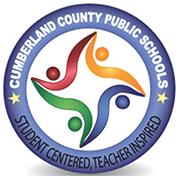
Cumberland County Public Schools
ER#145 Contact: Sheri Almond
“Developing Project-based Assessments with Primary Sources” provides training for Virginia Region 8 secondary History and Social Studies teachers assisting them in creating meaningful, authentic, project-based assessments (PBAs) focused on the digitized primary sources available on loc.gov.
Cumberland County Public Schools
ER #130 Contact: Amy Griffin
Making History Come Alive with Primary Sources
Cumberland County Public Schools, working in conjunction with other schools throughout Virginia Superintendent's Region 8, developed this project to provide training designed specifically for history and social studies teachers. The goal is to assist these teachers in creating rigorous and engaging lessons utilizing the freely-available digitized primary sources from loc.gov and The Library of Virginia to enrich and deepen the curriculum. Through a series of three professional development sessions, teachers learn how to access, download, and incorporate resources into lessons to effectively address the new Virginia Standards of Learning. A culminating session showcases teacher-developed resources and lesson plans. Ultimately, participating teachers are prepared to lead training sessions for their fellow educators throughout the region and further support the implementation of primary source based activities to address unique classroom needs.
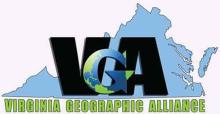
Virginia Geographic Alliance
ER #133 Contact: Chris Bunin
Placing Primary Sources is a tiered program focused on capacity building, curriculum development, professional development and sustainability. The project consists of three phases. Phase one is a Teacher Scholars Program in which teacher leaders take part in workshops that emphasize skills related to searching loc.gov, selecting appropriate primary sources and implementing these sources to promote inquiry learning in the classroom, along with WebGIS Story Mapping techniques. Scholars then collaborate with project leadership to create interactive, media-rich WebGIS Story Maps and lesson plans that mirror effective instructional practices promoted by the TPS program. During Phase two, project leaders design and deliver virtual and face-to-face VGA-TPS Teacher Institutes that train a national audience to use the TPS Story Maps and lesson plans in the classroom. Phase three focuses on project sustainability in the form of publishing journal articles and creating a crowdsourced WebGIS map to serve as a go-to resource for searching Placing Primary Sources materials by type, topic and/or geography.
Going to the Source! Teaching and Researching with Library of Congress
Placing Primary Sources

Virginia Commonwealth University
ER #113 Contact: Gabriel Reich
TPS: Assessment Design for Historical Thinking
This project is a result of collaborations between Dr. Reich and the social studies specialist at Chesterfield County Public Schools, Lynn Bland. Over the course of a year, groups of secondary teachers learn to navigate the millions of primary sources available through loc.gov and practice mindfulness in refining the selection process to best suit curricular and individual student needs. Later, they engage in a learning community to articulate instructional goals, construct assessment tasks, align pedagogy to support goals, and gather feedback and suggestions from one another. Ultimately, they design a unit and an authentic history assessment, implement the unit in the classroom, gather and evaluate assessment data, and refine the assessment design and/or supporting pedagogy based on results.
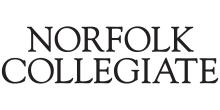
Norfolk Collegiate
ER #108 Contact: Paige Solomon
Improving Historical Thinking Skills through Source-Based Instruction is a project where students gain greater depth of understanding when they learn about history through the careful examination of pertinent documents instead of the glossed-over simplifications found in some textbooks. In addition to history content knowledge, students improve their reading, critical thinking, and analytical skills. Students also learn visual and cultural literacy and develop greater confidence in their own abilities and perceptions.
This project focuses on the creation of a body of primary source-based lessons ready for use by middle and high school teachers teaching world history, United States history, and government. Documents from The Library of Congress are supplemented with local primary sources available digitally from the Sargeant Memorial Collection at the Norfolk Public Library and other collections. Materials are tailored for the Hampton Roads community and highlighting the historical significance of our region. Professional development sessions with Norfolk Public School teachers focus on inquiry-based instruction, teacher resources available on the Library of Congress website, and how to research and create their own primary source activities. In addition to our partnership with Norfolk Public Schools, we are working with the Hampton Roads Naval Museum to design enrichment lessons for teachers to use with their classes either before or after their field trips.
Students benefit from the utilization of materials specifically designed to foster the growth of their analytical skills with written material and visual images. Additionally, students construct a more personal interpretation of history and gain a more meaningful understanding of the history they study.
Activities for Government, World, US, and Virginia History
Virginia Historical Society
ER #110 Contact: Evan Liddiard
The Story of Virginia Interactive Timeline utilizes digitized primary sources from the Virginia Historical Society and the Library of Congress, including text, audio, and video to place Virginia's story within the greater framework of the history of the United States. The finished timeline anchors a new digital education space for the Virginia Historical Society, while helping educators and students develop the digital literacy and historical thinking skill sets that enable students to critically and creatively use primary sources.
Who Freed the Slaves IDM
The Story of Virginia Digital Timeline
Virginia Historical Society
ER #89 Contact: Elaine Hagy
Primarily Virginia is a thirteen-week online teachers institute that highlights the collections of the Virginia Historical Society and the Library of Congress, while emphasizing both primary source learning and historical inquiry. The six-module-based institute allows K-12 teachers from around Virginia to access the resources of the VHS and the Library of Congress from their homes or schools. The institute builds a virtual community of educators, allowing participants to engage with both museum professionals and their colleagues. The target audience includes both current and pre-service educators, and the goal is to establish a new generation of instructors versed in teaching with primary sources.
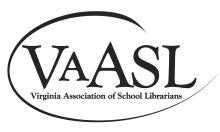
Virginia Association of School Librarians
ER #85 Contact: Heather Balsley and Krissy Schleicher
The Virginia Association of School Librarians provides primary source institutes and professional development across the Commonwealth of Virginia. The three- and four-day institutes provide instruction in identifying primary sources and finding them on the Library of Congress website. Evaluation and analyzing techniques are provided, along with lesson ideas and strategies. Each participant develops and submits a lesson plan by the end of the institute and shares the information with their home school through collaboration, small group instruction, or professional development. Instruction is correlated with the Virginia Standards of Learning and addresses 21st Century skills.
Campbell County Schools
ER #74 Contact: Myra Frazier
Get Writing with Primary Sources is a co-curricular professional development opportunity for English and Social Studies teachers in Campbell County. The project focuses on nonfiction writing as a vehicle for learning activities, using primary sources to promote critical thinking skills and document analysis in the classroom. Participants apply the Library of Congress instructional practices and primary source collections to the creation of lesson plans and activities that focus on nonfiction writing. Teachers share writing activities and instructional practices through the division Social Studies and English PLCs (Professional Learning Communities). Workshop participants and all other English and Social Studies teachers are required to document the implementation of these activities used in co-curricular classroom instruction. Participants continue to discuss and reflect upon the instructional value of using primary sources in their PLCs throughout the year and activities and lesson plans are posted on the division website.
Constitutional Powers and the Civil War Lesson Plan created by Arlene Ballowe, Jessica Dill, Mickey Orrell and Priscilla Reynolds

Spotsylvania County Schools
ER #69 Contact: Jennifer Belako
Utilizing Primary Sources through 21st Century Instructional Design trains secondary teachers (Social Studies, English, and Special Education) in not only how to use primary sources in their teaching, but also how to use them in creating authentic assessments for students. Teachers learn to incorporate primary sources into their lessons through completion of online modules from the Library of Congress, workshops with Fredericksburg Area Museum and Cultural Center, and training from Spotsylvania County Schools Instruction Department staff. Participants create, field test, and share lessons within professional learning communities (PLCs) in their buildings. Additionally, teachers receive training on writing effective assessment questions and performance tasks that incorporate primary sources. Teachers utilize the assessments with their students, incorporate them into their common formative assessments with their PLCs, and integrate them into updated curriculum guides for all teachers.
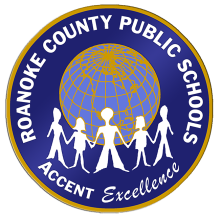
Roanoke County Public Schools
ER #63 Contact: Heather Balsley and Krissy Schleicher
Bringing History to Life in your Classroom offers a series of workshops and a summer institute for teachers and librarians from the Roanoke County, Roanoke City, Salem, and Botetourt County school districts and surrounding areas. The workshops demonstrate how to navigate the Library of Congress website and how to utilize the primary sources and lesson plans through hands-on activities. The summer institute focuses on how to analyze primary sources, develop a lesson using the inquiry process with students, and prepare this lesson for use in the classroom. The summer institute is a make-and-take conference where teachers leave with ideas and lessons ready for use in the classroom.
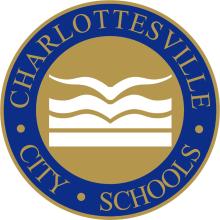
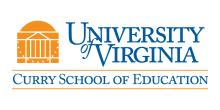
Charlottesville City Schools and University of Virginia: Curry School of Education
ER #53
The Transatlantic Teacher Scholars Program is an international collaboration between the University of Virginia and the National Archives (London) in which history teachers in central Virginia and in the United Kingdom collectively explore a critical theme in American and British history. This inquiry-based professional development program focuses on nations in conflict in order to explore turning points that occurred in the midst of turmoil during the World War Period of 1911-1945. Using long distance learning technology, this cohort works with esteemed historians to develop their own research topics, analyze and interrogate relevant primary sources from the Library of Congress and National Archives collection, and create hands-on classroom strategies for this content. Participating Teacher Scholars design these teaching kits. In fall 2012, a one-day institute called "Nations in Conflict: Teaching World Wars Using Primary Source Materials" was hosted. Workshop sessions were led by Transatlantic Teacher Scholars as well as university and project personnel. Each focused on a specific content and methodological approach.

Montgomery County Public Schools
ER #50 Contact: Sharon Zuckerwar
In collaboration with the Library of Congress and the History Education Program at Virginia Tech (VT), MCPS teachers designed a new 5th grade social studies course called My Place in Time and Space. This course uses Library of Congress and local primary sources to support the teaching of higher-order historical analysis skills through inquiry-based learning activities. The project offers opportunities for teacher collaboration and provides training on the effective use of primary sources in the classroom.
Course activities engage students in making connections between history and themselves through the use of primary sources. The use of these Library of Congress resources enables students to wonder and investigate by developing questions and gaining new information provided by primary sources. These investigations help students construct new understandings that ultimately help them express and reflect on their own learning. This higher order thinking structure develop the skills students need to be successful learners.
Junior Detectives: Teaching with Primary Sources as a Bridge to Disciplinary Literacy

Virginia Tech University
ER #30 Contact: David Hicks
The Dining of Washington: Using the Chronicling America Historic Newspaper Collection is a project created to facilitate the doing of history in a standards-based environment. On October 20th 1901, the Richmond Times shared with its readers a series of headlines from several southern newspapers reacting to an event held at the White House that was organized and attended by President Theodore Roosevelt and his family. The Memphis Scimitar called the event a "Damnable outrage". The Augusta Chronicle (Georgia) described it as "a distinct shock". The Nashville Banner suggested the occurrence would "chill southern favor." While the Nashville American asserted that "His mother would have rebelled." But what action by a sitting President could have created such a groundswell of consternation and dismay from the southern press? Was this dismay/anger confined to the Southern Press? Such questions emerged from locating news articles from the Library of Congress' Chronicling America database of historic newspapers. Importantly, insights to the above questions can be gleaned through continuing to locate and analyze the historical newspapers in the collection. In doing so, it becomes clear that the southern press' furor was a result of Roosevelt's invitation to Booker T. Washington to have dinner with him at the White House. By accepting the invitation, Washington became the first African American to dine at the White House in an era described as the "nadir of race relations in the United States".
Using the "Dining of Washington" and its coverage in the Southern, Northern and African American newspapers as the key focal point, the goal of this project is to develop materials and organize teacher workshops that examine and model how to harness the potential of the Chronicling America Historic Newspaper Collection to facilitate the teaching and learning of historical inquiry, analysis, and enhance content understanding of late 19th century and early 20th century social and political American history in standards-based history and social science classrooms.
Project Website
Junior Detectives: Teaching with Primary Sources as a Bridge to Disciplinary Literacy
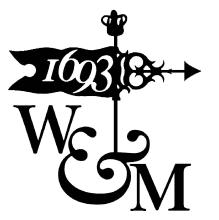
William and Mary University
ER #10 Contact: Mark Hofer
The Historical Scene Investigation (HSI) project is a collection of freely-available Web-based cases in American history that positions students as investigators of particular events in American history. In each HSI case, students are presented with a key question (e.g. Who fired the first shot at Lexington Green?), a task, key historical documents, and analysis prompts to help them develop a tentative answer to the key question. With support from the TPS Eastern Region grant program, three new cases using the Library of Congress online collections were developed. Strategies developed through the TPS program, as well as ways to differentiate the exercises to better meet the needs of diverse learners in the typical heterogeneous public classroom, are incorporated.
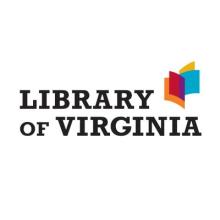
Library of Virginia
ER #4 Contact: Mark Howell
The Shaping the Constitution (STC) module serves as a prototype for a series of educational products designed to introduce the wealth of the collections of both the Library of Congress and the Library of Virginia to K-12 audiences, in a compelling, interactive, and accessible form. The module is designed to deliver an interactive web site with the main focus of examining and interpreting primary source documents, with scores of archival documents presented within the module.